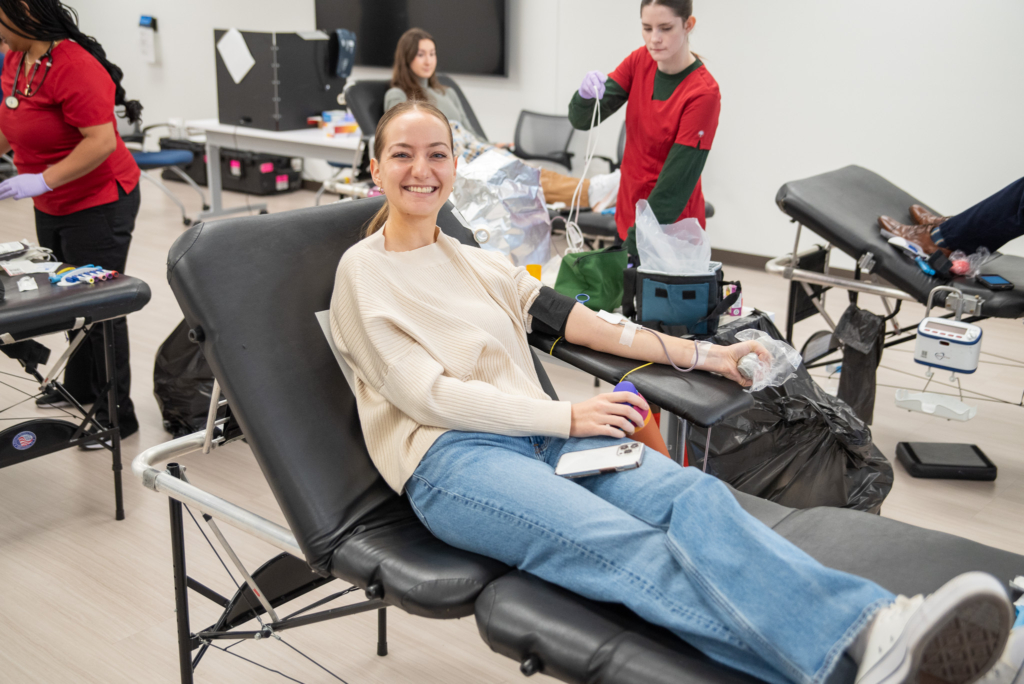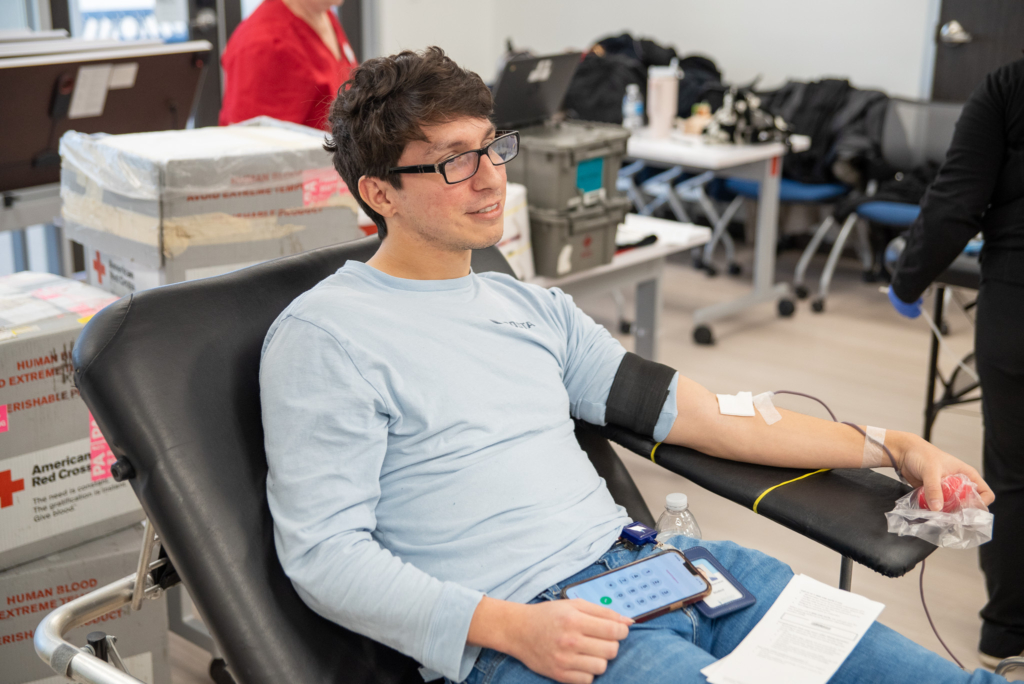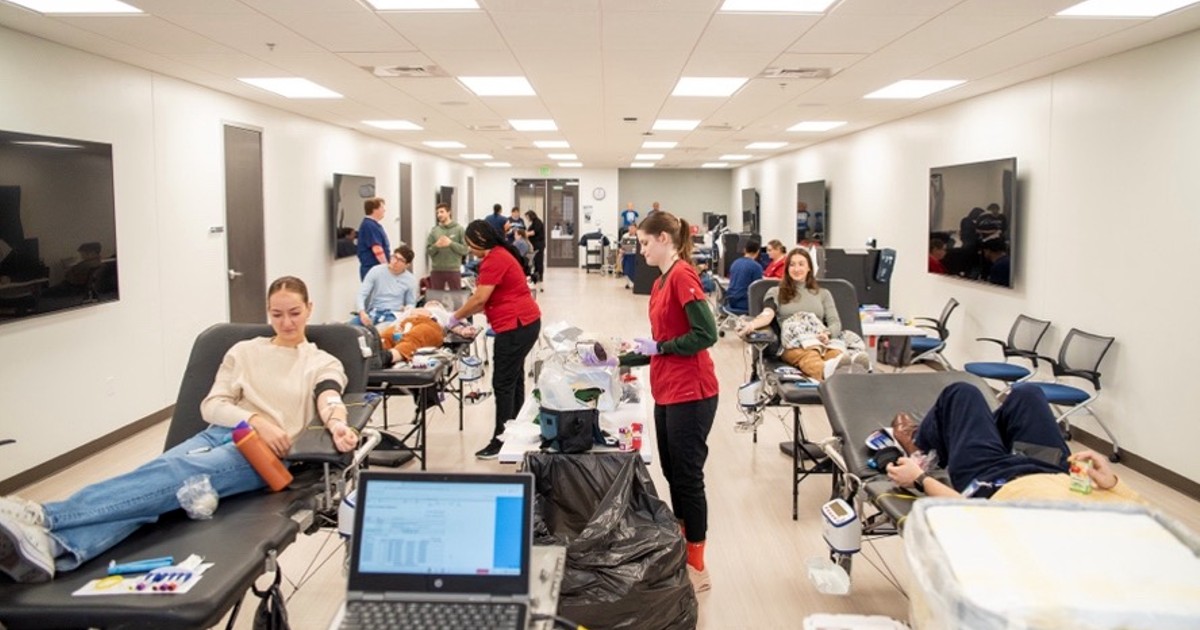In commemoration of Martin Luther King Jr. Day, the Kansas Health Science Center Cares Committee organized a blood drive at KansasCOM aligned with the National Day of Service. The holiday encourages Americans to volunteer and uplift their communities, and our blood drive highlighted the dedication of KHSC student doctors and faculty members to supporting the Wichita community.
Collaborating with the American Red Cross, 38 student doctors and KHSC–KansasCOM staff and faculty addressed the urgent requirement for sufficient blood supplies in local hospitals. Of those, 22 individuals were first-time donors. Their participation ensured timely assistance for patients in need, highlighting the impact of blood donors in health care emergencies.

OMS II Grace Bartlett says she regulary donates blood because she is a universal donor.
Second-year osteopathic medical student Grace Bartlett said, “It is our second annual time having the Red Cross come, and we love it because it is convenient. It is easy to come right from class and give blood. I think it is important because I have O-negative blood, which is a universal donor.”

OMS II David Albaracin participates in blood donation on Martin Luther King Jr. Day, the National Day of Service.
Second-year OMS David Albaracin said, “It is important for me [and others] to be in the community because it is important that the community knows that we are here and that we are here to help.”
The act of donating blood not only saves lives but also embodies KHSC–KansasCOM’s core values. KHSC–KansasCOM believes that an unwavering commitment to ensuring the overall health and well-being of the communities it serves is paramount. Long-term community relations, built on trust and promised action, are fundamental in fostering enduring relationships within the Wichita community, and the participation of student osteopathic doctors, staff, and faculty members in the blood drive signifies our dedication to serving Wichita.
Each donation represents a lifeline for those facing critical medical conditions, accidents, and surgical procedures. By contributing to this cause, donors directly impact the health and well-being of individuals within their community.
This endeavor not only honors Dr. King’s enduring legacy of service but also emphasizes the potency of united action in effecting positive change. Through their selfless contributions, participants continue to forge a lasting impact on the welfare of their fellow community members.
Staff Sgt. Austin Richards, a local Army medical recruiter, generously donated his time and a large order of food to those who gave blood.
“It’s hard enough to get students to come away from their busy schedules, and obviously having some kind of incentive—not that we’re trying to draw students into the incentive alone, but it’s difficult to put somebody in the seat and offer the needle to them without having a little bit extra,” Richards said. “I think for medical school students specifically, being part of the solution sometimes is a little bit more hands-on—or, in this case, arms—more than others thought.”

